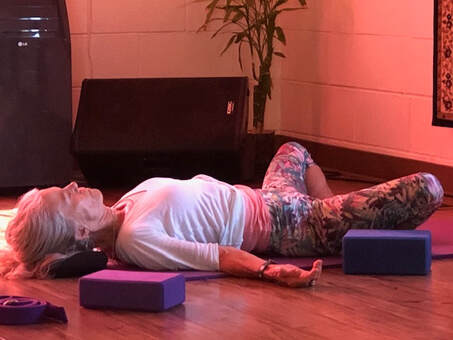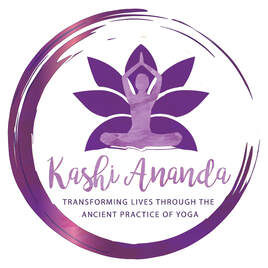TriYoga Therapeutics
at Siren's Studio in Sebastopol
at Siren's Studio in Sebastopol
July ~ August
Mini Session ~ 6 Weeks
Mondays 11:30-1:00 ~ Level 1 Therapeutics
July 8 - August 19
(no class on 8/12)
The Monday group is for those newer to working with Kashi.
Tuesdays 11:30-1:00 ~ Level 2 Therapeutics
July 9 - August 20
(no class on 8/13)
The Tuesday group is for those who have been working with Kashi for awhile.
See below for more details and class description.
Mini Session ~ 6 Weeks
Mondays 11:30-1:00 ~ Level 1 Therapeutics
July 8 - August 19
(no class on 8/12)
The Monday group is for those newer to working with Kashi.
Tuesdays 11:30-1:00 ~ Level 2 Therapeutics
July 9 - August 20
(no class on 8/13)
The Tuesday group is for those who have been working with Kashi for awhile.
See below for more details and class description.
In-Person Only & Space Limited
(online option on Tuesdays considered case by case basis)
Contact Kashi to Inquire
May ~ June
8 Week Sessions
Mondays 11:30-1:00 - Level 1
April 29 - June 24
(no class on 5/27)
The Monday group is for those who are newer to working with Kashi.
Tuesdays 11:30-1:00 - Level 2
April 30 - June 25
(no class on 5/28)
The Tuesday group is for those who have been working with Kashi for awhile.
See below for more details and class description.
The Monday Therapeutic Yoga Level 1 Course is for you who are newer to the practice and to working with Kashi. You may be dealing with chronic pain, the aging body, recovery from injury, or something else and need to slowly enter into the practice learning the postures, the props, the breath, and what is appropriate for where your body is currently. If you are newer to working with Kashi, the Monday Therapeutic Level 1 class may be a better fit for you.
The Tuesday Therapeutic Yoga Level 2 Course is for students who have been working with Kashi for awhile. You have come to a certain level with strength, balance, and understanding of the practice and how it relates to your body. You are familiar with the movements and pranayama (breath practices) and are progressing with the teachings. You have a good understanding of how to use the props and how to approach the postures in the way that is safe for you.
All that being said, this course continues to be for those who need a very gentle approach to yoga due to physical limitations, muscle weakness, aches and pains, injury, recovery from injury or illness, the aging body, or emotional challenges such as being over-tired, anxious, depressed, and/or stressed.
Although all yoga is potentially therapeutic and healing, yoga therapy is the specific application of yogic tools— postures/exercises, breathwork, meditation techniques, and more—to address an individual’s physical, mental, and emotional needs.
You will complete an intake form prior to the start of the series to help me to prepare for your specific needs. The practices in this class could include:
This series is for those who need a very gentle approach to yoga due to physical limitations, muscle weakness, aches and pains, injury, illness, the aging body, or emotional challenges such as being over-tired, anxious, depressed, and/or stressed.
The Therapeutic Yoga Class draws from TriYoga® Postures, Flows, Pranayama (breath work), Functional Anatomy, Chair Yoga, Yoga of Recovery, Y12SR, Trauma Informed Yoga, and more. The yoga postures are deeply nurturing, therapeutic, and restorative and will safely increase flexibility, build strength, and improve balance. In addition to the postures, classes include breathing practices, concentration practices and meditation. Yoga props are used to ensure comfort and safety in the poses and to support proper alignment.
Kashi has undertaken specialized training (800 hours) beyond that of a yoga teacher in accordance with the IAYT's (International Association of Yoga Therapist's) educational competencies for the training of yoga therapists. As an IAYT - Certified Yoga Therapist, I adhere to the professional ethics, guidelines, and codes relating to the practice of yoga therapy as defined by the IAYT and commit to not making false or inaccurate claims about yoga's therapeutic and healing capacities.
This class is an In-Person only class and is limited to 10 participants to allow for individual attention. Once registered you will receive an email inviting you to complete an online intake form (if you have not done so recently) so that I will have some knowledge of what you are coming in with. If further communication is needed before the course, you will be contacted.
(online option considered case by case basis)
Props To Bring With You: Your Own Yoga Mat & A Water Bottle
Studio has props available for your use (not including yoga mat).
Props that we use may include: yoga blocks, yoga strap, bolster, chair.
You are welcome to bring your own props if you are not comfortable using ours.
The Tuesday Therapeutic Yoga Level 2 Course is for students who have been working with Kashi for awhile. You have come to a certain level with strength, balance, and understanding of the practice and how it relates to your body. You are familiar with the movements and pranayama (breath practices) and are progressing with the teachings. You have a good understanding of how to use the props and how to approach the postures in the way that is safe for you.
All that being said, this course continues to be for those who need a very gentle approach to yoga due to physical limitations, muscle weakness, aches and pains, injury, recovery from injury or illness, the aging body, or emotional challenges such as being over-tired, anxious, depressed, and/or stressed.
Although all yoga is potentially therapeutic and healing, yoga therapy is the specific application of yogic tools— postures/exercises, breathwork, meditation techniques, and more—to address an individual’s physical, mental, and emotional needs.
You will complete an intake form prior to the start of the series to help me to prepare for your specific needs. The practices in this class could include:
- Gentle movements to stretch and strengthen
- Breathing techniques
- Meditation or visualization practices
- Any combination of techniques like these and more!
This series is for those who need a very gentle approach to yoga due to physical limitations, muscle weakness, aches and pains, injury, illness, the aging body, or emotional challenges such as being over-tired, anxious, depressed, and/or stressed.
The Therapeutic Yoga Class draws from TriYoga® Postures, Flows, Pranayama (breath work), Functional Anatomy, Chair Yoga, Yoga of Recovery, Y12SR, Trauma Informed Yoga, and more. The yoga postures are deeply nurturing, therapeutic, and restorative and will safely increase flexibility, build strength, and improve balance. In addition to the postures, classes include breathing practices, concentration practices and meditation. Yoga props are used to ensure comfort and safety in the poses and to support proper alignment.
Kashi has undertaken specialized training (800 hours) beyond that of a yoga teacher in accordance with the IAYT's (International Association of Yoga Therapist's) educational competencies for the training of yoga therapists. As an IAYT - Certified Yoga Therapist, I adhere to the professional ethics, guidelines, and codes relating to the practice of yoga therapy as defined by the IAYT and commit to not making false or inaccurate claims about yoga's therapeutic and healing capacities.
This class is an In-Person only class and is limited to 10 participants to allow for individual attention. Once registered you will receive an email inviting you to complete an online intake form (if you have not done so recently) so that I will have some knowledge of what you are coming in with. If further communication is needed before the course, you will be contacted.
(online option considered case by case basis)
Props To Bring With You: Your Own Yoga Mat & A Water Bottle
Studio has props available for your use (not including yoga mat).
Props that we use may include: yoga blocks, yoga strap, bolster, chair.
You are welcome to bring your own props if you are not comfortable using ours.

What Is Yoga Therapy?
Yoga therapy is difficult to define, in part because of the breadth and depth of the tradition itself, and because, like Yoga, the discipline can be approached in so many different ways. Nonetheless, for Yoga therapy to be better understood and accepted, it is necessary to have a reasonable and pragmatic definition understandable to those without experience with Yoga, yet still acceptable to those steeped in the practice and philosophy.
A Few Definitions of Yoga Therapy
IAYT Educational Standards for the Training of Yoga Therapists
"Yoga therapy is the process of empowering individuals to progress toward improved health and well-being through the application of the teachings and practices of Yoga."
Joseph LePage, M.A., Integrative Yoga Therapy
"Yoga therapy is that facet of the ancient science of Yoga that focuses on health and wellness at all levels of the person: physical, psychological, and spiritual. Yoga therapy focuses on the path of Yoga as a healing journey that brings balance to the body and mind through an experiential understanding of the primary intention of Yoga: awakening of Spirit, our essential nature."
Michael Lee, Phoenix Rising Yoga Therapy
"Yoga therapy is a holistic healing art. Rather than prescribe treatments, it invites presence and awareness. Using age-old yogic approaches to deeper presence and awareness, we are able to know ourselves more fully. Out of that knowing, we are more easily moved to embrace the opportunity for change, growth, and enhanced well-being in body, feelings, thought, and spirit."
Richard Miller, Ph.D, Founder iRest Institute
"Yoga therapy may be defined as the application of yogic principles to a particular person with the objective of achieving a particular spiritual, psychological, or physiological goal. The means employed are comprised of intelligently conceived steps that include but are not limited to the components of Ashtanga Yoga, which includes the educational teaching of yama, niyama, asana, pranayama, pratyahara, dharana, dhyana, and samadhi. Also included are the application of meditation, textual study, spiritual or psychological counseling, chanting, imagery, prayer, and ritual to meet the needs of the individual. Yoga therapy respects individual differences in age, culture, religion, philosophy, occupation, and mental and physical health. The knowledgeable and competent yogin or yogini applies Yoga Therapy according to the period, the place, and the practitioner's age, strength, and activities."
Yogini Kaliji, Founder of TriYoga International
Yoga that is practiced systematically is therapeutic. In India the ancient healing system is called yoga chikitsa (healing, therapy). In the same way, TriYoga Therapeutics supports those recovering from, or living with illness or injury. There are many healing modalities under the umbrella of yoga chikitsa to tailor a program based on the individual need. TY Therapeutics provides the foundation in understanding your personal needs. We often hear that many people start yoga because of an injury or body pain. Then later say it was a blessing in disguise as it brought them to the far reaching benefits that they may never have discovered.”
Georg Feuerstein, Ph.D.
Yoga therapy is of modern coinage and represents a first effort to integrate traditional yogic concepts and techniques with Western medical and psychological knowledge. Whereas traditional yoga is primarily concerned with personal transcendence on the part of a "normal" or healthy individual, yoga therapy aims at the holistic treatment of various kinds of psychological or somatic dysfunctions ranging from back problems to emotional distress. Both approaches, however, share an understanding of the human being as an integrated body-mind system, which can function optimally only when there is a state of dynamic balance.
Richard Miller, Ph.D.
"Yoga therapy may be defined as the application of yogic principles to a particular person with the objective of achieving a particular spiritual, psychological, or physiological goal. Yoga therapy respects individual differences in age, culture, religion, philosophy, occupation, mental and physical health."
Home |
Classes |
Video Library |
Contact |
(about) |
Copyright © 2021 Kashi Ananda Yoga
